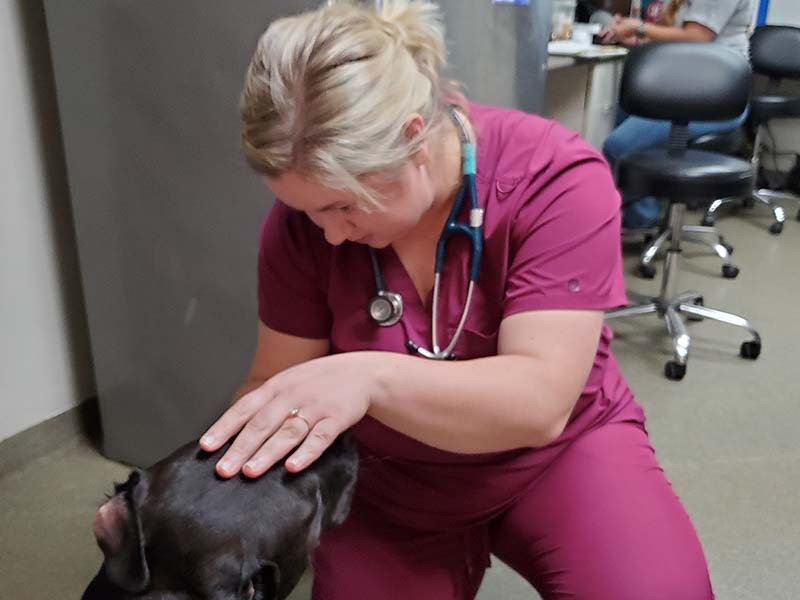Mosquito bites are typically not dangerous to humans in the southern United States, but they can pose a danger to pets.
Dr. Morgan Shaver, Chief Medical Officer for the Humane Society of Northeast Georgia (HSNEGA), said once a mosquito bites a heartworm-positive pet, that mosquito can infect other pets it bites.
“It gets, they’re called microfilariae, into the mosquito that grows in the mosquito and then that gets injected into another dog,” said Shaver. “That is how dogs get heartworms.”
Shaver said heartworms are not transmissible from dog to dog, it only passes through the mosquito.
“The heartworm has to go through a mosquito because the microfilariae have to grow to a certain stage in order for them to be able to infect another dog,” said Shaver. “It has to have that mosquito vector.”
While the most common time for a pet to get bit by a mosquito is during the spring and summer, Shaver said it takes six months for heartworms to show up on a test.
Therefore, a pet bitten in the spring or summer months may not test positive for heartworms until the fall or winter.
Shaver said heartworms are common in dogs in Georgia, due to the constant number of mosquitos. Cats are not as likely to contract heartworms, since most cats stay indoors, and often do not carry as many heartworms as dogs.
However, Shaver said cats can still get heartworms in the same way as dogs.
She said symptoms of heartworms in a pet are “silent” at first. Symptoms include coughing, lethargy and wheezing.
“That’s because the heartworms have actually moved from growing in the pulmonary artery in the lungs into the heart, and so it can progress to congestive heart failure,” said Shaver.
She recommended taking the pet to a veterinarian within the first day or two of noticing the symptoms.
“Heartworms are really serious, it will eventually lead to congestive heart failure and most likely death if you never get them treated,” said Shaver. “Now, the time it takes for an animal to get to that point depends on the animal, of course, but eventually they’ll all get there.”
Shaver said the best way to prevent heartworms in pets is to put the pet on a preventative medication. Some medications come in a chewable tablet form that pets can take once a month, others are shots that can administered once every six months or even once a year.
Shaver said both forms of medication are available at the Humane Society of Northeast Georgia.
“You really want to make sure you’re staying on it and not getting off of it for even a month, because that month they may get infected,” said Shaver. “There’s nothing you can really do from there except treat it.”
If a pet owner opts not to put their pet on medication, Shaver said they should have their pet tested for heartworms once every six months.
Treatment for a heartworm-positive pet is lengthy, expensive and painful for the pet. Rescues that have heartworms when they come to the Humane Society of Northeast Georgia are often sent to foster homes for the duration of their treatment.
Foster homes provide a more comfortable atmosphere for the rescue while they undergo the grueling treatment.
During this time, the rescue is on strict exercise restriction.
“They have to have exercise restriction because obviously clinical signs are exercise intolerance and all that…as you're working on killing those worms [the pets are] just at a higher risk of honestly sudden death and collapse and stuff because their heart and lungs are just working so hard,” said Shaver. “They're honestly diseased in a way that the heart worms have affected them so they don't work quite as well as a normal dog’s would.”
While the Humane Society’s Healthy Pet Clinic does not offer heartworm treatment to animals outside of the shelter at this time, Shaver said she is hopeful it will in the future.
For more information on medical services offered at the Humane Society of Northeast Georgia’s Healthy Pet Clinic, visit its website.

http://accesswdun.com/article/2021/9/1040585/heartworm-prevention-in-pets
